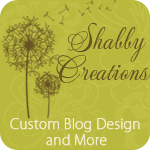Since most beginners will start on a lever harp, the focus here will be on smaller harps. We will discuss additional features of pedal harps at a later date.
In making your selection, you first have to be able to answer the questions below. Your teacher will be a big asset in helping you:
How many strings to I want on my harp? Folk harps range from 28 strings to 40.
Do I want full levers, none, or partial?
Is ease of moving the harp important to me?
Do I want new harp with a warranty and a higher price tag, or used "as is"?
What string spacing works most comfortably with my hand?
Do I like looser tension or tighter?
Is the size right for my height - is it comfortable to sit behind the harp?
Which type of harp back feels best resting on my shoulder - square (stave back) or round?
Is the harp strung in folk or pedal gauge strings? Which feels best on my finger tips?
Is nylon the sound that I like or do I prefer the sound of gut strings?
Is the harp made by a reputable manufacturer?
How much am I willing to spend?
And lastly, what wood finish and overall look do I like? Strictly a personal decision there.
If you are considering a used harp. There are many places to look for a quality used instrument. Again, help will be invaluable in this area from your teacher. When purchasing used, here are some additional questions to ask the seller:
Age of harp - serial number. The age can be verified with the manufacturer.
History of ownership - original owner?
Has it been keep strung, regularly played?
Where has it been housed?
What accessories come with it?
Any cracks and dings - are they structural or merely cosmetic which can be repaired?
Be sure to play the harp and assess the sound and feel. Then weigh the cost and quality of a
used harp at a lower price with the comparable new harp with a warranty.
GOOD LUCK - and happy harping!







0 comments:
Post a Comment